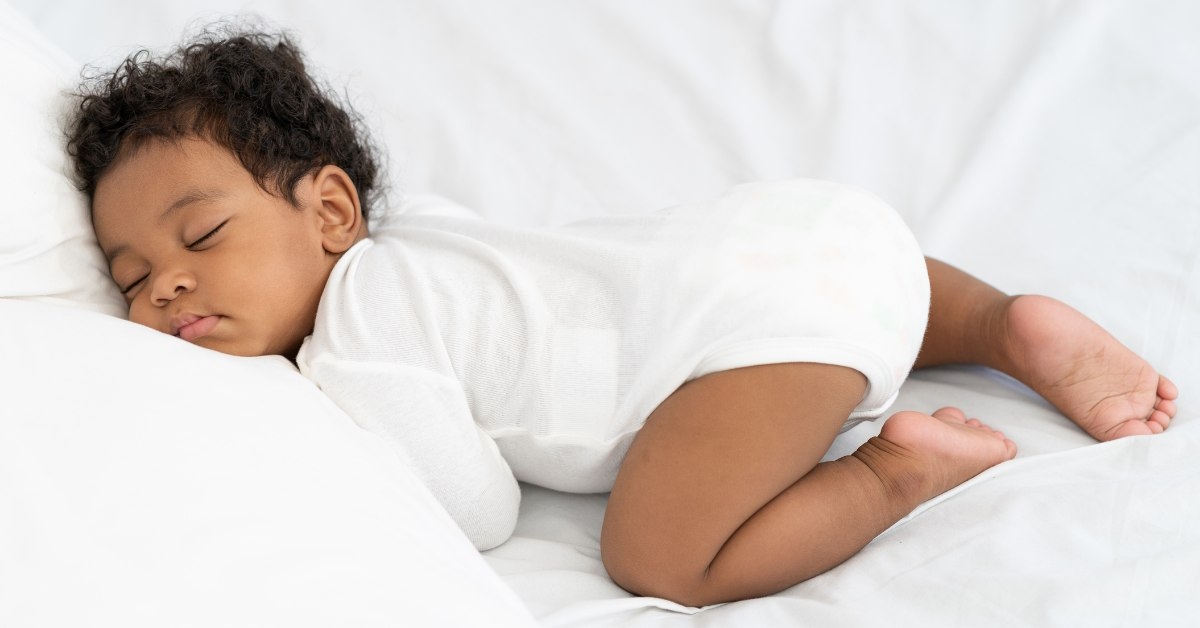What if a baby has diarrhea and nosebleeds? In this Q&A, a 9-month-old baby gets profuse nosebleeds while pooping.
What can this be, and what can be done about the situation?
Mom’s Question:
After a nap yesterday, my baby’s nose was bleeding profusely. The blood was thick and coming out like water running out of a faucet. She messed up the pillowcases, sheets, comforter, and 5 face towels, and my mother’s shirt was covered in blood as well. We managed to get her nose to stop bleeding on the way to the ER, and they examined her and said they couldn’t find any reason as to why her nose was bleeding and that the cause may be a sinus infection, allergies, or cold. So we left the ER, and when we were back at home, my baby’s nose started to bleed profusely once again while she was sitting in my mother’s lap watching TV.
Each time her nose bled, she had a diaper full of boo boo. It’s coming all out of the diaper. She wasn’t running a temp at all. What could be causing this with my little girl, and is there anything seriously wrong with her?
Amecia
Baby With Nosebleeds And Diarrhea: Reasons and Remedies
Baby Gets Nosebleeds When Pooping; Possible Connections
Nosebleeding in a baby – or actually in any person, is often caused by some trauma (by a fall or by picking the nose, for example), dry air making the tiny blood vessels sensitive, colds, sinus infections, or allergies. Some blood disorders, anatomical problems with the nose, and drugs may also increase the risk of nose bleeding.
It also seems like some people simply get a nosebleed easier than others. Maybe the skin inside their nose is thinner, or some of the blood vessels are closer to the mucous membrane in their nose and hence more sensitive to trauma or dry air.
Now you have realized that there seems to be a connection between pooping and nose bleeding for your baby. You don’t mention if her pooping is normal or not. If the frequency, texture, or amount has changed, this could indicate some illness or maybe a change of diet. Would you say she has diarrhea?
In any case, the connection you have found between your baby’s pooping and nosebleeds could be for two reasons:
The first – and most probable, is that something minor and common (a cold, trauma, or dry air, for example) has resulted in a small wound in her nose, and when she strains to poop, the wound starts bleeding again. And since most babies poop at least once per day, the wound starts bleeding again and again and never really has time to heal. If your baby is somewhat constipated or has tummy issues, the straining could make the situation even worse.
The second possibility is that both diarrhea (if she has that) and nose bleeding are caused by some underlying issue that needs to be resolved. Is your baby on any medication? Or have you recently introduced new foods? Gluten allergy (celiac disease) can have symptoms that include both diarrhea and nosebleeding, so if your baby recently started with pasta and bread, for example, this may be something to discuss with her doctor. Side effects of any medicines should also be discussed.
If anything from point two above applies, point one may continue to occur until the underlying cause is identified and addressed.
How to prevent more nose bleeds
Nosebleeds are often quite abundant without being dangerous. But of course, you still want to prevent new nose bleeds.
A few things you can do to prevent future nose bleeds are the following:
- Put a humidifier in the room where your baby sleeps. That should take care of any dry air issues and help the wound (if any) to heal.
- You can also try saline drops for your baby’s nose to keep it moist.
- Put Vaseline or lanolin ointment on a Q-tip and gently rub the inside of your baby’s nose twice per day.
- Use an antibiotic ointment inside the nose to help heal inflammations or wounds. There are both over-the-counter and prescription ointments available, so discuss an appropriate ointment with your baby’s healthcare provider.
- If nothing helps, a doctor can cauterize the bleeding vessel to stop the bleeding.
- Finally – do follow up on any medication or allergies that may be causing the nose bleeds (and possibly also diarrhea, but I am not sure if you felt they were actually a problem too)
Remember that nosebleeds are very rarely dangerous – they just look scary! But if your baby seems to have a severe headache, starts bleeding, or bruises easily in other parts of her body, or if the nosebleeding keeps coming back very frequently despite taking all the precautionary measures described above, you should talk to a doctor to have her examined so that illness or allergies can be ruled out.
I hope this helps,
Paula
More on Nose Bleeds in Babies
References
Penn Medicine: Celiac Disease
Find comments below.

Paula Dennholt founded Easy Baby Life in 2006 and has been a passionate parenting and pregnancy writer since then. Her parenting approach and writing are based on studies in cognitive-behavioral models and therapy for children and her experience as a mother and stepmother. Life as a parent has convinced her of how crucial it is to put relationships before rules. She strongly believes in positive parenting and a science-based approach.
Paula cooperates with a team of pediatricians who assist in reviewing and writing articles.







Have you looked at the symptoms for celiac disease? These are both very strong indicators.
I hope your baby gets diagnosed quickly so he/she can get better soon. This sounds horrible.
Good Luck
It is true that both diarrhea and bleeding easily are possible symptoms of celiac disease. Weight loss is another one, and for children, stunted growth, since celiac disease may lead to malnutrition.
If your baby does consume gluten and has a bloated belly, abdominal pain, diarrhea, and possibly is growing slowly or not gaining in weight, it is certainly prudent to ask for a blood test for celiac disease.
With the right diet (gluten-free), symptoms may disappear within weeks, sometimes within even just a couple of days.
Children that have been slow to grow are likely to start growing again and even catch up when put on a gluten-free diet.
I hope it helps,
Paula